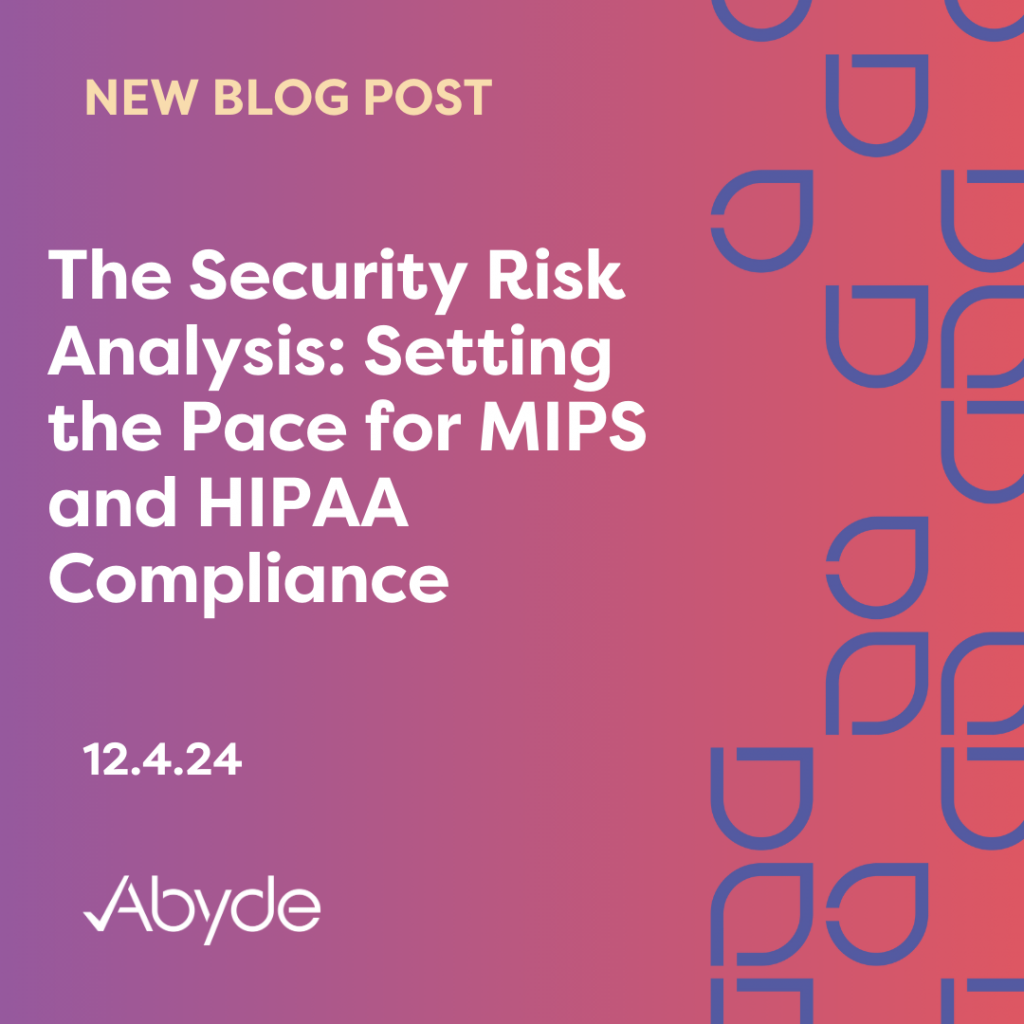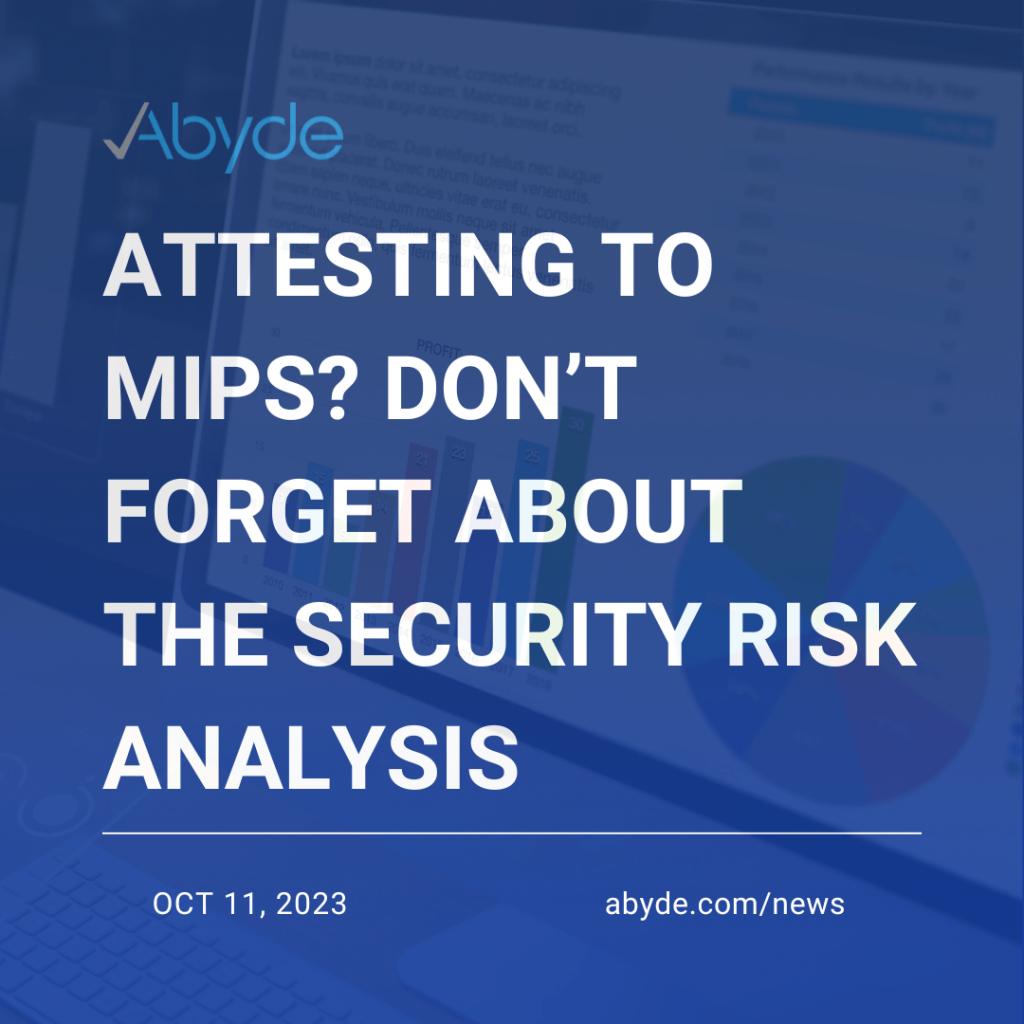December 4, 2024 As a healthcare provider, tackling your daily to-do list probably feels like running a marathon without a finish line at times. You’re tasked with managing a successful business, keeping up with ever-changing legislation and new technology while ensuring that your top priority of patient care never falls behind. Despite the challenging course, there’s a benefit to keeping pace with both quantity and quality. Providers are rewarded for going the extra mile thanks to Value-Based payment programs like MIPS and other government incentives like the HIPAA Safe Harbor Law. What is MIPS? You’ve most likely heard of the Merit-based Incentive Payment System (MIPS) and might already be a participant in it. Whether it’s a Quality Payment Program or new legislation passed into law, the government continually emphasizes the importance of being proactive rather than reactive and providing incentives for doing so. This is why it’s valuable to know whether your organization is eligible to participate in government programs (you can check here). Many of these different program requirements align with the standards your practice already has to meet under HIPAA law—protecting your patients, checking off compliance requirements, and receiving incentives can often be done all in one stride. To take a quick step back, MIPS is one of two payment tracks under the Medicare Quality Payment Program. The Centers for Medicare and Medicaid Services (CMS) uses this system to measure eligible clinician performance and reward high-value, low-cost care. MIPS participants can receive a payment adjustment to their Medicare reimbursements based on their performance scores across four different categories: Quality: The type of care you deliver based on specific measures of performance. Promoting Interoperability: Focuses on patient engagement and electronic exchange of information using Electronic Health Record (EHR) technology to improve patient access to their health information and exchange of information between providers. Improvement Activities: Your participation in clinical activities that work towards improving care coordination and patient engagement and safety. Cost: Assesses the cost of care you provide in relation to your Medicare claims. The Importance of the Security Risk Analysis (SRA) Before you can engage with the various performance measures, you must first meet a prerequisite for participating in the MIPS Promoting Interoperability performance category. This requirement is crucial not only for achieving HIPAA compliance but also for benefiting from other government incentives: the Security Risk Analysis (SRA). Conducting an SRA involves evaluating any potential risks to your organization’s electronic Protected Health Information (ePHI) and implementing necessary security updates and safeguards to address any identified vulnerabilities. Your organization must complete an SRA at least once a year to comply with MIPS and HIPAA standards. Additionally, it’s important to review and update the assessment regularly throughout the year to reflect any changes in your processes. Getting Compliant for MIPS Beginning your compliance journey can be overwhelming, but it is essential to take advantage of government initiatives such as MIPS. Intelligent software solutions can help keep your practice on track by outlining the requirements for HIPAA compliance and offering a streamlined SRA that meets MIPS standards. To learn more about how to become compliant for MIPS, schedule a meeting with a compliance expert today.
Attesting to MIPS? Don’t forget about the Security Risk Analysis
October 11, 2023 It’s your practice’s responsibility to get the SRA done, not your EHR The Merit-Based Incentive Payment System (MIPS) is a Medicare program that rewards eligible clinicians and groups for providing high-quality, cost-effective care. MIPS is a value-based payment program, which means that it ties payments to performance on quality measures, promoting interoperability, improvement activities, and cost. Eye care practices are eligible to participate in MIPS, and they can earn financial incentives for performing well on the program’s measures. One of the most important measures in MIPS is the Security Risk Analysis (SRA). The SRA is a process that helps eye care practices identify and mitigate security risks to their patients’ protected health information (PHI). The SRA must be conducted annually, and MIPS-eligible clinicians must attest to completing an SRA in order to receive a score for the Promoting Interoperability performance category. There are many reasons why SRAs are important for eye care practices. First, SRAs help practices comply with the Health Insurance Portability and Accountability Act (HIPAA), which requires covered entities to protect the privacy and security of PHI. Second, SRAs can help practices avoid costly and damaging data breaches. Data breaches can have a significant financial impact on eye care practices. In addition to the direct costs of responding to a breach, practices may also face lost revenue, reputational damage, and liability lawsuits. SRAs can help eye care practices to avoid data breaches by identifying and addressing security risks. The SRA process involves assessing the practice’s physical, technical, and administrative safeguards and implementing corrective actions to address any identified deficiencies. In addition to helping practices comply with HIPAA and avoid data breaches, SRAs can also help practices improve their overall security posture. By regularly conducting SRAs, practices can identify and address new security threats as they emerge. Eye care practices can conduct SRAs on their own, or they can hire a qualified third party to assist them. There are many resources available to help practices conduct SRAs, including the CMS website, the HIPAA Security Rule website, and the ONC website. Here are some tips for eye care practices conducting SRAs: By conducting regular SRAs, eye care practices can protect their patients’ PHI, avoid costly data breaches, and improve their overall security posture. Need help or have questions? Click here to schedule a complimentary compliance consultation with an expert today!

